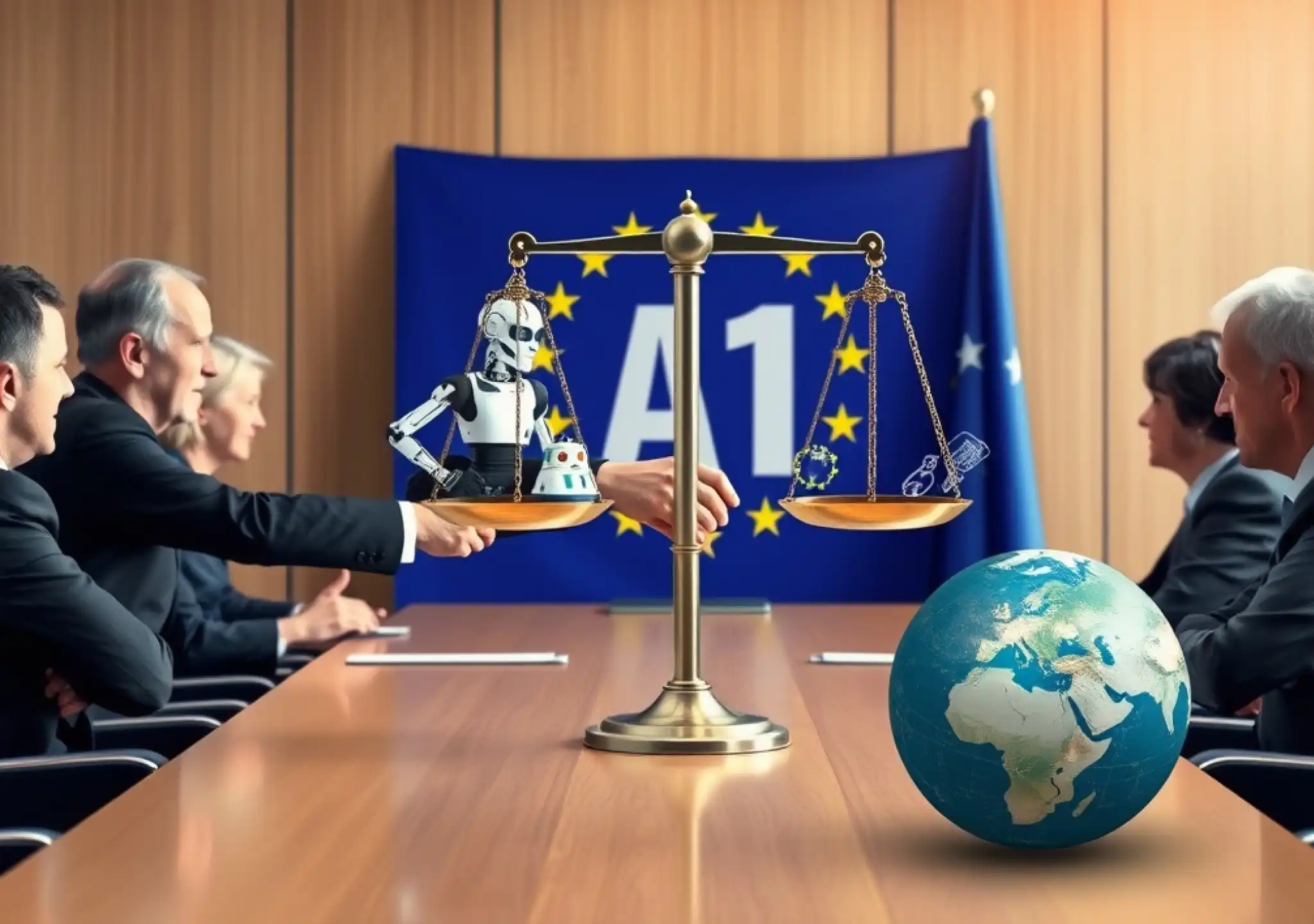EU’s AI Act aims to safeguard rights and set a global precedent
EU policymakers have reached a historic agreement on a comprehensive law to regulate artificial intelligence (AI), marking a major step in establishing the most ambitious standards to govern the rapidly advancing technology. After nearly 38 hours of intense negotiations, the European Union has agreed to support the “AI Act,” which is expected to set the framework for AI development and ensure safety for individuals and businesses alike.
“This AI Act is a global first, a pioneering legal framework that will foster trustworthy AI development,” said Ursula von der Leyen, President of the European Commission. “This legislation is a commitment to safeguarding the rights and safety of people and businesses, which we’ve promised in our political guidelines—and today we’ve delivered. I’m proud of this political agreement.”
The push for the AI Act gained significant momentum following the release of OpenAI’s ChatGPT in 2022, which brought AI into the global spotlight. The law is regarded as a potential global standard, offering a model for governments eager to harness AI’s benefits while mitigating the risks, including disinformation, job displacement, and intellectual property issues.
After delays over debates regarding the regulation of language models that scrape data from the internet and concerns over AI usage by law enforcement and intelligence agencies, the legislation is now set to move to the EU parliament and member states for approval.
Key Features of the AI Act
The legislation requires tech companies operating in the EU to disclose the data used to train their AI systems and conduct rigorous testing of AI products, particularly those used in high-risk areas like autonomous vehicles and healthcare. It also introduces a ban on indiscriminate scraping of online images or security footage to build facial recognition databases, although exceptions will allow “real-time” facial recognition by law enforcement in cases of terrorism and serious crimes.
Violations of the new AI law could result in heavy penalties for tech companies, with fines reaching up to seven percent of their global revenue, depending on the severity of the breach and the company’s size.
A Global Benchmark for AI Regulation
The EU’s AI Act is seen as the most comprehensive and forward-thinking attempt to regulate AI to date, as countries around the world continue to develop their own frameworks. In the U.S., President Joe Biden signed an executive order in October addressing AI’s impact on national security and issues of discrimination, while China has introduced regulations mandating that AI align with “socialist core values.” Meanwhile, nations like the UK and Japan have opted for a more laissez-faire approach to AI regulation.
The AI Act stands as a testament to the EU’s ambition to not only regulate AI but to lead the global conversation about how to responsibly govern this transformative technology.

